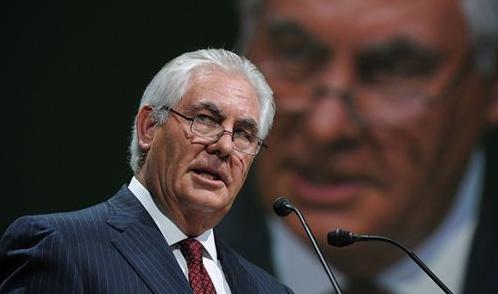Ted Galen Carpenter, Senior Fellow, Randolph Bourne Institute
Mar 22, 2021
A complete reassessment of Washington’s stance on territorial disputes in the East and South China Sea is long overdue. Implied obligations and strategic ambiguity only increases risks for all parties.
Ramses Amer, Associated Fellow, Institute for Security & Development Policy, Sweden
Li Jianwei, Director and Research Fellow, National Institute for South China Sea Studies
Apr 23, 2020
Territorial dispute over Paracel Islands in the South China Sea should be solved by China and Vietnam, which have overlapping claims. So why is the United States weighing in?
Tung Chee Hwa, Chairman Emeritus, China-United States Exchange Foundation
Jun 29, 2018
China is the rightful claimant to the Spratly Islands.
Sébastien Colin, Associate Professor, National Institute for Oriental Languages and Civilizations, Paris
Apr 18, 2017
Could the arbitration award of 12 July 2016 have unexpectedly opened a cycle of appeasement between China and South-East Asian countries in the South China Sea? It is difficult to conclusively answer this question, since behind these changes are uncertainties and continuities likely to undermine at any moment the progress made.
Chen Xiangmiao, Assistant Research Fellow, China National Institute for South China Sea Studies
Apr 10, 2017
Some ASEAN countries efforts to woo Tokyo because of their suspicions about China’s strategic goals, thus creating an opportunity for Japan to enhance its presence in the region. But the real problem is Japan itself, and China and ASEAN countries should take anticipatory measures to protect the hard-earned détente in the region.

Sourabh Gupta, Senior Fellow, Institute for China-America Studies
Feb 17, 2017
Mr. Tillerson betrays a lack of understanding of the U.S. position on the sovereignty claims in the South China Sea. As a matter of policy, the U.S. takes no position – and hasn’t for decades – on these rival claims. If the Secretary of State has the chance to encounter 96-year Li Jingsen on his next visit to Beijing, he might learn that the warships sent by China to recover the islands in 1946 were even provided by the United States.
Zheng Yu, Professor, Chinese Academy of Social Sciences
Dec 09, 2016
For a country with nearly 1.4 billion people and a high dependence on foreign trade, the security of sea-lanes in the Western Pacific is first of all a matter of life and death for China. Obviously any attempt to seek hegemony by controlling those sea-lanes will only lead to regional turbulence, which in turn will endanger the security of China’s own international transport routes.
Lucio Blanco Pitlo III, President of Philippine Association for Chinese Studies, and Research Fellow at Asia-Pacific Pathways to Progress Foundation
Oct 17, 2016
Track II diplomacy’s results remain mixed, but it takes only one successful attempt to provide concrete and specific agenda items for formal talks. It is within this lens that the Ramos-Fu August 2016 meeting in Hong Kong could be appreciated.
Fidel Ramos, Member, ASEAN Eminent Persons Group
Oct 13, 2016
Three months ago, the Permanent Court of Arbitration in The Hague ruled that there was no legal basis for China to claim historic rights to the resources in the West Philippine Sea (also known as the South China Sea), and thus that the Philippines has exclusive rights to the territory. China rejected the ruling, and an icy chill overcame the once-friendly bilateral relationship. It is time to bring back some warmth.